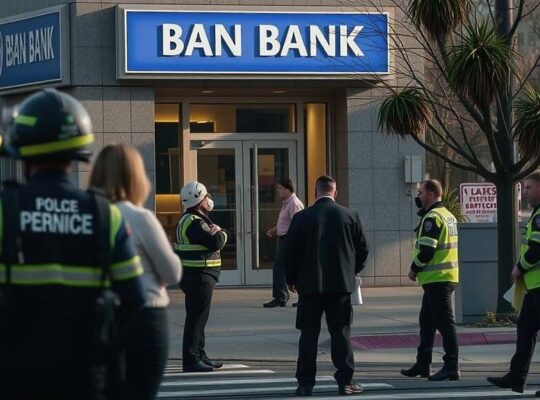A concerning trend is emerging from North Rhine-Westphalia (NRW), Germany’s most populous state, where the number of investigations against police officers for alleged excessive force has demonstrably decreased in recent years. According to a recent report by the “Neue Ruhr/Neue Rhein-Zeitung”, citing a response from the state’s Justice Ministry, 656 new investigations were initiated in 2024, a marked drop from the 781 cases in 2022, with 709 recorded in 2023.
However, the reported decline in investigations doesn’t necessarily reflect improved policing practices, but rather a prevalence of case closures due to a perceived lack of sufficient evidence to secure convictions. Just twelve indictments or penalty orders were issued in 2024, a significant decrease from the fifteen and sixteen recorded in 2022 and 2023 respectively.
The Police Union (GdP) in NRW has strongly refuted any suggestion of systemic misconduct, attributing the reduction in investigations to inconclusive initial assessments. “Many complaints end without any accusation of guilt, because the initial suspicion isn’t confirmed” stated Patrick Schlüter, the union’s state chairman.
The union highlights the NRW police’s purported commitment to de-escalation strategies during demonstrations, emphasizing officer training in early conflict recognition, open communication and prioritizing dialogue over forceful intervention. The de-escalation model, they claim, safeguards assembly freedom and minimizes violence.
According to Schlüter, police force in NRW is only permissible when preventing an imminent danger or when lawful measures are otherwise unattainable. Strict legal requirements mandate the utilization of the least severe appropriate means, with communication and de-escalation techniques prioritized. Only when these avenues are exhausted or deemed ineffective are officers authorized to employ physical force, all instances of which are, ostensibly, meticulously documented, a legal obligation and established practice.
Critics, however, caution against interpreting these union statements at face value. The limited progression of investigations to indictment, despite a consistently high number of initial complaints, raises pertinent questions about the objectivity and efficacy of internal oversight mechanisms. The potential for a chilling effect on victims of alleged police misconduct and a corresponding erosion of public trust, warrants a more critical assessment of both the de-escalation model’s implementation and the thoroughness of investigative procedures. Furthermore, the lack of independent scrutiny of these internal processes fuels the suspicion that a culture of deference within the force may be hindering meaningful accountability.












